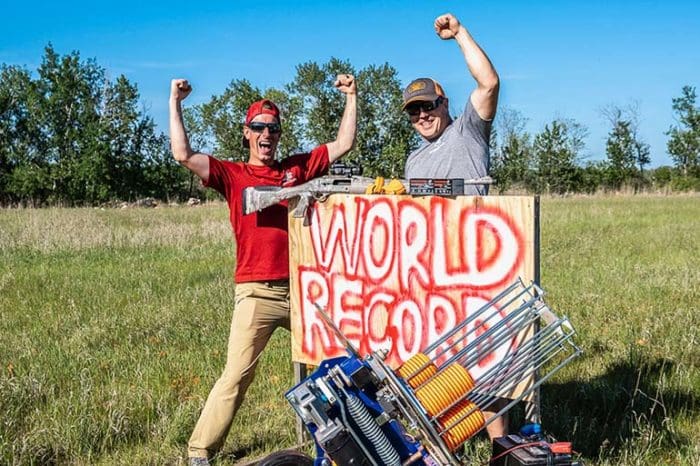At the heart of competitive shooting is the one question: How far away can I hit a target?
In the many thousands of years that the bow has existed, archers have vied to see who could strike a target at the longest distance, with the official record now, set only a few years ago, stretching to almost 300 yards.
More recently, a rifleman claimed a hit at three miles on a steel target with a scoped rifle. Interestingly, the Guinness World Records does not accept shots made with scoped rifles, stating they want to maintain a level playing field.
What we don’t often think about, though, is what the maximum range would be for breaking a clay bird with a shotgun.
Almost a decade ago, Englishman George Digweed set the record for breaking a clay pigeon at 130 yards. The calculation that goes into successfully making a shot on a moving target at that range can seem daunting.
A shooter has to take into account the flight of the target and his shot string. He has to gauge not only how far to lead the faraway target but must also figure in shot drop. And there are the matters, as well, of wind and temperature.
To break the clay, the shot has to be not only far enough ahead of the target to meet it as it flies, but fired in a high enough arc so it essentially falls down on the target. All of that from a distance at which the shooter after firing can lower his shotgun, eject the empty, and look up to see the target break.
Now enter Winchester exhibition shooters, brothers Aaron and Steve Gould. The Goulds came to shooting by different routes, even as siblings. Aaron was pretty much a shooter and hunter from the cradle, while Steve didn’t discover his passion for it until college, growing out of a life changing experience in college.
Inspired by the shooting performances of the late, legendary Tom Knapp, and able to meet him and take guidance from him, the two brothers set out on their mutual careers as expert shooters.
So, some years later, they set up a clays trap in the middle of a field and measured out increasing distances with the use of a laser rangefinder. They also use a Winchester SX-3 Longbeard turkey gun. And especially Winchester’s long-range Rooster XR Elite pheasant loads.
The shell’s state-of-the-art Shot-Lok Technology is a crucial factor not only in holding the shot in a tighter pattern, but also keeping the shot round for truer flight for longer range.
The Goulds started at the existing record distance of 130 yards and with a gun, it should be noted, choked Improved-Modified, began breaking their way back to newer records until they dusted a bird at 160 yards.
If the shot were physically able to maintain its muzzle velocity across that range, it would take over one-third of a second to reach the bird. But the laws of physics mean the shot will have to lose velocity, so figure at least half a second to cover the distance, a virtual lifetime for a clay target in the air.
The brother’s are adamant that this is not an invitation to try anything like such long-range shots on live birds. Even if you could hit a bird at a distance such as that, the shot wouldn’t have enough penetration to be lethal, but at best only crippling.
It is fascinating, though, to see what two brothers, one gun, and the right shells can achieve when you take them all to their absolute extremes.
This article originally appeared at at winchester.com and is reprinted here with permission.
